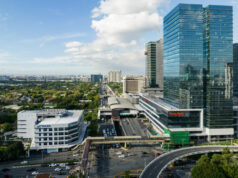PHILIPPINE manufacturing companies face significantly higher logistics costs than those in Indonesia, Vietnam and Thailand, according to a report released by the Department of Trade and Industry (DTI) on Thursday.
Conducted in partnership with the World Bank, the study titled ”An Assessment of Logistics Performance of Manufacturing Firms in the Philippines” showed logistics costs as a percentage of sales in the Philippines reached 27.16%. This compares to Indonesia’s 21.4%, Vietnam’s 16.3% and Thailand’s 11.11%.
The study was conducted in 2017, covering 159 local companies — mostly from the food industry (42%), construction materials sector (12%) and furniture and decors sector (11%).
Aside from high costs, the study also found the most important issue for manufacturers is reliability.
“Although cost is highly important, it is also seen as a by-product of low logistics reliability. Hence, if reliability is not improved, cost issues may continue to persist because its level is highly affected by obtained reliability,” the study said.
In the Philippines, the ability of a transport company to deliver goods in full and on time is low, particularly for construction materials, chemical products, food and electronics. This reliability issue “forces manufacturers to rely on inventory and warehouses, further increasing the logistics cost for the users.”
The study also noted logistics performance in the Philippines varies depending on island group. For example, Visayas has a cash conversion cycle of almost one month, while in Mindanao it is only two weeks, making it more financially challenging for firms in Visayas than in Mindanao.
Given that both the Philippines and Indonesia are archipelagic in structure, Trade and Industry Secretary Ramon M. Lopez said the government is targeting to reach the logistics cost level of Indonesia.
“Indonesia might be a good representation of our next target… It’s so hard to target immediately 11% of Thailand. (There are) a lot of inefficiencies to handle immediately… But maybe realistically, let’s look at bringing it down to 21% as a target for our costs,” he said during a press conference for the 1st Logistics Services Philippines Conference 2018 in Manila on Thursday.
Together with organizations from the logistics sector, the government committed to take a more active role in resolving these issues by collaborating with the private sector. The government it targets to create 7.5 million jobs in the logistics sector by 2022.
These commitments include cutting all forms of red tape; opening a platform for coordination between public and private sector; reviewing regulatory policies; and forming a Logistics Observatory for gathering of resources and data.
“These will be commitments not only from the private sector but also from the government sector to ensure that all these suggested programs, interventions, issues to be addressed would be really solved, will really be attended to by both government and private industry players,” Mr. Lopez said. — D.A.Valdez



